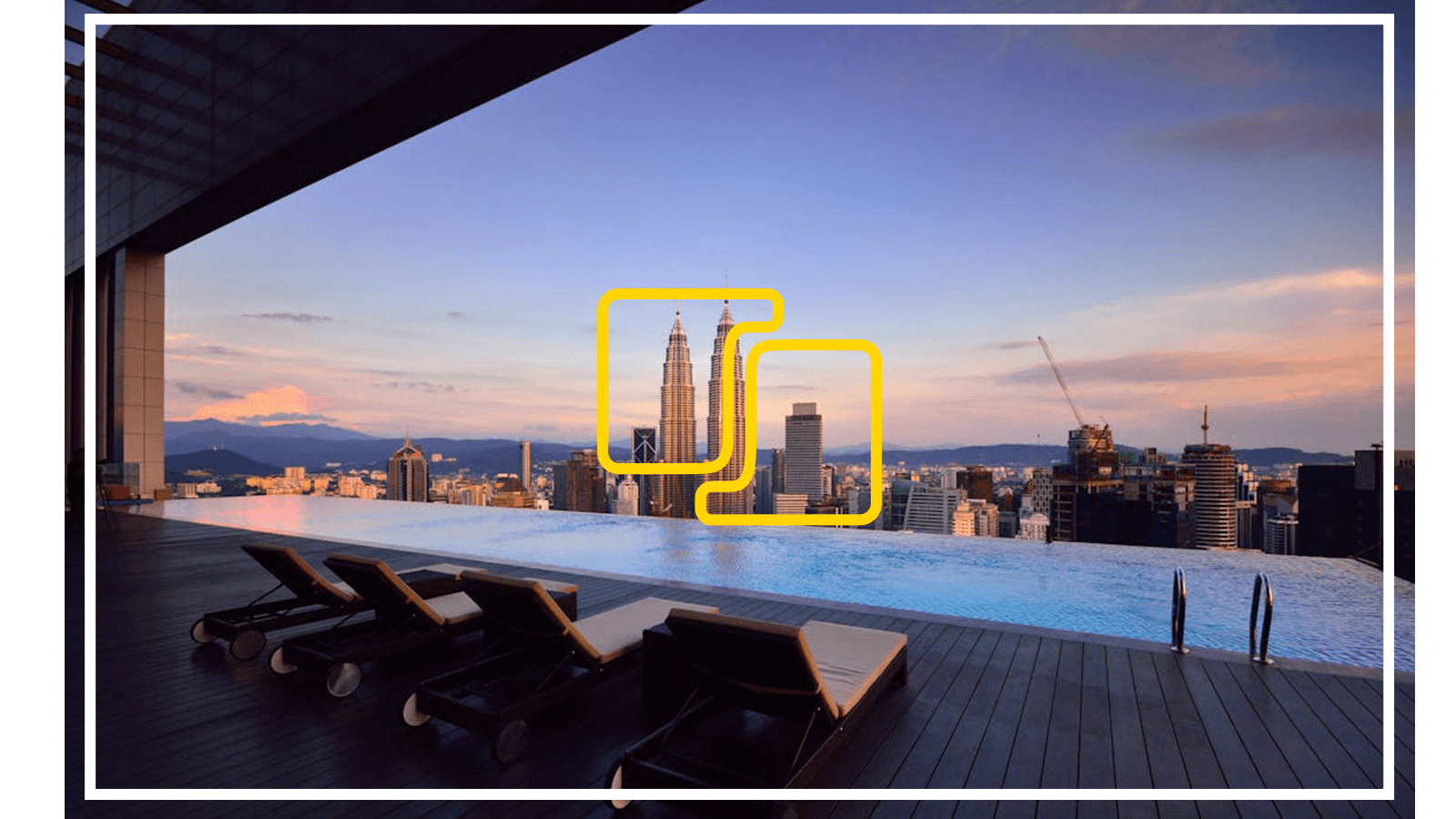Tax-ED Knowledge Kit
Meeting The Criteria for MIDA Incentives in The Hospitality Sector
What is MIDA Incentive?
MIDA is the government's principal investment promotion agency for the development of the manufacturing and services sectors in Malaysia which offers incentives to investors who intend to set up projects in Malaysia.
Definition of hotel by MIDA
A “hotel” is any accommodation, which includes a hotel, a motel, chalet or hostel, of the approved standard and registered with the Ministry of Tourism, Arts and Culture.
*
A “hotel business” is the carrying on of a business in a hotel where such business provides sleeping accommodation and may include providing of food, drinks and other services or facilities and the granting of concessions of any part of such hotel for purposes connected with and incidental to the promotion of tourism.
Incentives for Hotel Projects
1 – 3 Star Hotel
1 – 5 Star Hotel
Pioneer Status (PS):
Exemption of 70% on Statutory Income for 5 years
- - - - - - - - - - - - - - - - - - - or - - - - - - - - - - - - - - - - - - -
Investment Tax Allowance (ITA):
60% on Qualifying Capital Expenditure (QCE) incurred within 5 years will be deducted against 70% of Statutory Income.
Investment Tax Allowance (ITA):
60% on Qualifying Capital Expenditure (QCE) incurred within 5 years will be deducted against 70% of Statutory Income.
1 – 3 Star Hotel
Pioneer Status (PS):
Exemption of 70% on Statutory Income for 5 years
Investment Tax Allowance (ITA):
60% on Qualifying Capital Expenditure (QCE) incurred within 5 years will be deducted against 70% of Statutory Income.
1 – 5 Star Hotel
Investment Tax Allowance (ITA):
60% on Qualifying Capital Expenditure (QCE) incurred within 5 years will be deducted against 70% of Statutory Income.
Investment Tax Allowance and Pioneer Status are mutually exclusive in respect of the same promoted activity or product.
*
The same activity or product which has been granted Pioneer Status or Investment Tax Allowance previously cannot qualify for the same incentives again.
Eligibility Criteria
Criteria 1
Prior to Commencement of Business
Criteria 1
Prior to Commencement of Business
Criteria 2
Application by the Business Owner
Criteria 3
3 Companies
Criteria 4
Equity Requirement
Criteria 5
Registration
Criteria 6
Malaysian Employees
Criteria 7
Annual OPEX Commitment
Criteria 8
Other Business Activities
Criteria 9
Arm’s Length Pricing
Criteria 10
Debt to Equity Ratio
Criteria 11
National Committee on Investment
Pioneer Status Application
Step 1: Apply Online
All applications can be submitted online through the Invest Malaysia Website. Once application is approved the applicant will receive an interim MIDA Pioneer Status (PS) Approval Letter.
*
The approval letter will outline the conditions associated with the incentives.
*
The applicant may appeal unfavorable conditions at MIDA's discretion. MIDA evaluates business proposals, often requiring commitments on local-to-foreign employee ratios and other case-specific requirements.
Step 2: Application for Pioneer Certificate
Submission must be made within 24 months from the date of approval letter through Invest Malaysia Website
Once the submission is made, the applicant will receive the certificate, which specifies the duration of the incentive from dd-mm-yy to dd-mm-yy.
Investment Tax Allowance (ITA) Application
Step 1: Apply Online
All applications can be submitted online through the Invest Malaysia Website. Once application is approved the applicant will receive an interim MIDA Investment Tax Allowance (ITA) Approval Letter.
*
The approval letter will outline the conditions associated with the incentives.
*
The applicant may appeal unfavorable conditions at MIDA's discretion. MIDA evaluates business proposals, often requiring commitments on local-to-foreign employee ratios and other case-specific requirements.
Step 2: Application for the Determination of Effective Date (ITA-I)
After receiving the approval letter, the submission must be made within 24 months from the date of approval.
The ITA effective date will be determined based on the date when company first incurred capital expenditure. Applicant will receive an approval letter (ITA-I) from MIDA, confirming the ITA effective date.
The incentive period will commence from ITA effective date as stated in ITA-I approval letter. Throughout the incentive period, the applicant is required to submit Annual Compliance Report to MIDA.
Renewal: Verification of Compliance (ITA-II)
To ensure the continuation of the incentive, renewal submissions must be made at least one month before the expiration of the incentive period.
This submission confirms that the applicant has complied with all conditions necessary to claim the ITA throughout the 5-year incentive period.
Once the MIDA ITA-II Approval is granted, the applicant is required to submit an annual verification report, authorized by an accredited external auditor, each year throughout the incentive period.
Additional Incentives
MIDA also offers additional incentives on top of PS and ITA to reduce other operation costing.
Industrial Building Allowance (IBA): Hotel
IBA Eligibility
IBA would provide an initial allowance of 10% and annual allowance of 3%.
*
The applicant must be both the owner of the building and the business operator.
A building owner who rents out their property to another person for business purposes is not eligible to claim IBA on that building, even if the tenant uses it as an industrial building.
A tenant however, is eligible to claim IBA for capital expenditures incurred on alterations or renovations to the building if it is used as an industrial building.
Alterations or renovations must be carried out on buildings that comply with the same regulations.
Reference: Hotel (paragraph 37F, Schedule 3 of the ITA)
Qualifying Building Expenditure (QBE)
QBE Eligibility
Claimable capital expenditure on either:
*
Architect’s fees for designing a plan of the industrial building;
The cost of preparing plans and others in connection with obtaining approval from local authorities for construction of the building.
The cost in connection with the title to the building such as legal charges and stamp duty.
The cost of clearing the old site including the demolition of any old structure, provided that the old structure was not an industrial building and that the new building is situated precisely on the same site occupied by the old building.
The cost associated with works on the site such as piling, digging of foundations for drains, water pipes and electricity cables.
The cost of construction of the building which will include materials, labour, haulage, management, supervision and other overhead charges directly related to the construction.
The cost of installing fittings that form part of the building such as wiring for electric supply.
The cost of incidental expenditure on works which may be separately contracted such as drainage system, installation of water and electricity.
The cost of constructing additions, renovations and alterations to an existing building which are capital in nature.
The cost associated with the acquisition of site such as land cost, legal charges, payment of stamp duty and surveyor.
The cost of clearing the site of any previous works or demolishing the previous structure which was an industrial building; and the payment for compensation to obtain the right to occupy or own a property.
Reference: Public Ruling No. 3/2018
Unabsorbed Allowance or Loss (PS, ITA, IBA)
Unabsorbed pioneer losses can be carried forward to the next Year of Assessment for seven consecutive years after the tax relief period, which lasts for five years from the production day.
Can be carried forward to the next Year of Assessment until fully utilised.
Can be carried forward to the next Year of Assessment until fully utilised.
Real Property Gain Tax (RPGT)
What is RPGT?
RPGT is charged on chargeable gain from disposal of chargeable asset such as houses, commercial buildings, farms and vacant land.
With effect from 21.10.1988, RPGT is extended to gain from disposal of shares in real property company (RPC).
RPGT is imposed on disposers in the year of assessment where the disposal transaction takes place. The year of assessment shall be the calendar year.
Disposer, whether resident in Malaysia or not, is taxable on gain accrued on the disposal of chargeable assets situated in Malaysia. Disposer includes individual, company, partnership, organisation, trustees and other chargeable persons.
Date of agreement
Deemed to coincide with the date of disposal of that asset by the disposer to that acquirer.
Whichever earlier between:
Date of agreement
Whichever earlier between:
Deemed to coincide with the date of disposal of that asset by the disposer to that acquirer.
Understanding the Terminology
The amount or value received from selling an asset, minus any allowable expenses related to the sale.
Disposer, whether resident in Malaysia or not, is taxable on gain accrued on the disposal of chargeable assets situated in Malaysia. Disposer includes individual, company, partnership, organisation, trustees and other chargeable persons.
The amount or value paid by the owner to acquire the asset, including any additional costs related to the acquisition.
Disposer, whether resident in Malaysia or not, is taxable on gain accrued on the disposal of chargeable assets situated in Malaysia. Disposer includes individual, company, partnership, organisation, trustees and other chargeable persons.
Any expenses that can be deducted when calculating adjusted income or adjusted loss for income tax purposes should not be included when determining the acquisition or disposal price of an asset for Real Property Gains Tax (RPGT), regardless of whether these expenses were claimed under the Income Tax Act 1967.
Any expenses that can be deducted when calculating adjusted income or adjusted loss for income tax purposes should not be included when determining the acquisition or disposal price of an asset for Real Property Gains Tax (RPGT), regardless of whether these expenses were claimed under the Income Tax Act 1967.
Exemption
The exemption is RM10,000 or 10% of the chargeable gain, whichever is greater
Exemption on gain derived from disposal of a private residence.
Individual is entitled to the exemption once in a lifetime.
A private residence is defined as a building or part of a building in Malaysia owned by an individual and occupied or certified fit for occupation as a place of residence.
Exemption under Section 8 can only be granted on conditions:
- The individual is a Malaysian citizen or Malaysian permanent resident.
- Exemption is granted for a private residence only.
- Election for exemption must be made in writing and is irrevocable.
No further exemption will be given for the disposal of other private residences.
No election can be made where an exemption has been granted to an individual under the repealed Land Speculation Tax Act 1974 in respect of the disposal of a private residence.
Conclusion
Starting a hotel business in Malaysia presents a promising opportunity, particularly with the support of MITI incentives. With Malaysia's strategic location, rich cultural heritage, and commitment to sustainable tourism, entrepreneurs can leverage these advantages to create a successful hotel venture.
More Reasons to Invest in Malaysia
Skilled & Multilingual Workforce
Proficiency in English and regional languages ensures effective communication with partners worldwide. A well-educated talent pool, including engineers, researchers, technicians, and IT professionals, fosters innovation and productivity.
Sustainability & ESG Alignment
With the emphasis on green growth, renewable energy adoption with ESG-friendly policies, Malaysia attracts global investors and partners who prioritize ethical and sustainable business practices.





